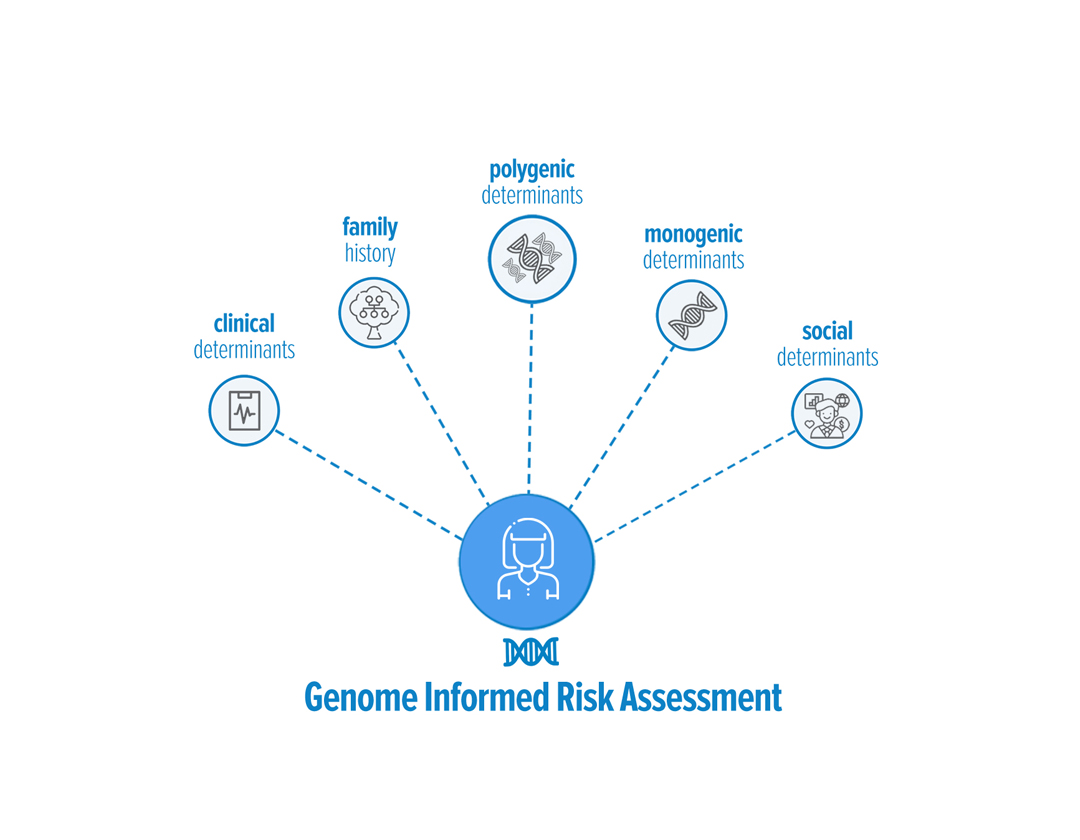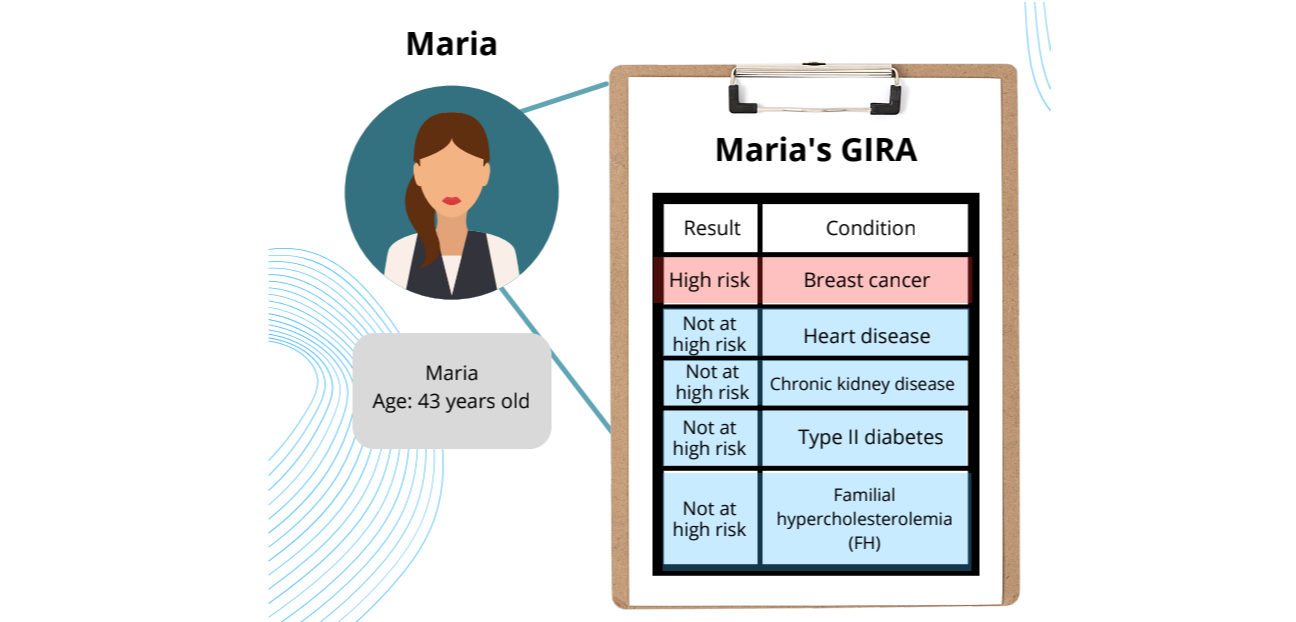Understand the Risk Report
Participants
Risk Report & Results
What is the Genome Informed Risk Assessment (GIRA) or health risk report?
The Genome Informed Risk Assessment (GIRA) is the overall report from this research study. This report says if you/your child are at high risk for any of the health conditions studied. “High risk” means that you have a higher chance of getting a condition than the average person. This study looked at 9 conditions for adults and 4 conditions for children under 18.
The report has information about health risks including genetic (one or more genes), you/your child’s health history, and family health history. If you were found to be at high risk for one or more conditions, you can learn more about your risk in the “Understanding Your Risk” pages. You can speak to a study staff member about your results. The report may be put in your electronic health record and will be given to your doctor. It contains a summary of your risk factors, as well as the gene reports and family history information described in the consent form.

What information is used to give me a risk report?
In the report, differences in your genes, along with your family history, and your medical history are combined to estimate your risk of getting common conditions, such as diabetes, heart disease, and cancer.
Some people have an increased risk because they have one specific change in their DNA. This is called monogenic risk: “mono” means one.
Other people have an increased risk because they have many changes in their DNA. This is called a polygenic risk: “poly” means many. The score that summarizes this risk is called a “polygenic risk score” or “PRS”.
Other factors that increase risk include family health history and your medical history

Will this report diagnose me with a condition?
The report is not a diagnosis but might provide information on your risk for certain conditions. Other tests may show that you already have these conditions.
This is a research study, and we are still learning about the conditions we are studying. We will give you the most accurate report we can based on what we know at the time we give you results. This report cannot tell you about your risk for conditions that we are not studying.
This report looks at your risk of some common conditions such as diabetes, heart disease, and cancer.
